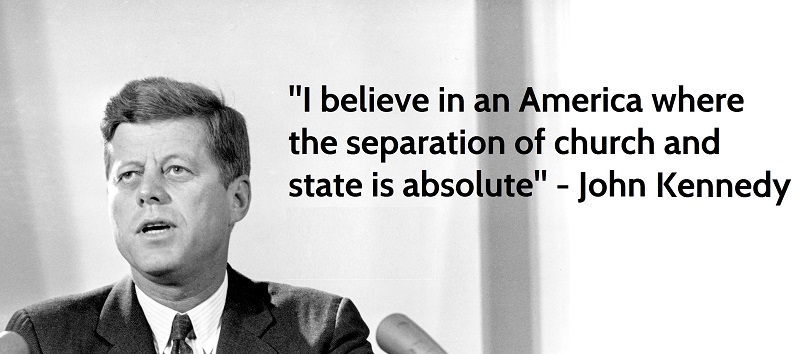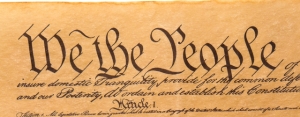Introduction
In 1947, the first modern Establishment Clause case made its way to the Supreme Court, and the Court ruled that the Fourteenth Amendment applies the clause to all levels of government.
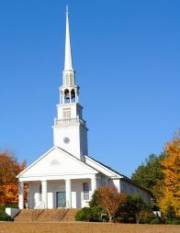
The Supreme Court has since interpreted the Establishment Clause in dozens of cases. Certain general principles have emerged from the CourtÔÇÖs jurisprudence. Separation of church and state means ÔÇ£that government may not promote or affiliate itself with any religious doctrine or organisation, may not discriminate among persons on the basis of their religious beliefs and practices, may not delegate a governmental power to a religious institution, and may not involve itself too deeply in such an institutionÔÇÖs affairs.ÔÇØ
The government cannot ÔÇ£set up a church
In short, the government cannot promote, advance, fund, endorse, affiliate itself with or participate in religion. Furthermore, the First Amendment ÔÇ£mandates governmental neutralityÔÇØ both among religions and ÔÇ£between religion and non-religion.ÔÇØ The Supreme Court has clarified that the Constitution does not merely proscribe the preference of one Christian sect over another. . . [It] require[s] equal respect for the conscience of the infidel, the atheist, or the adherent of a non-Christian faith such as Islam or Judaism.
The Supreme Court has distilled these principles into a test to be applied by courts in cases in which an Establishment Clause challenge is brought. All governmental actions must: 1) have a secular purpose, 2) not have the effect of advancing or inhibiting religion, and 3) not result in excessive entanglement between church and state. The court has named this analysis the ÔÇ£Lemon testÔÇØ after the case in which it was first stated.
RELIGIOUS DISPLAYS ON GOVERNMENT PROPERTY
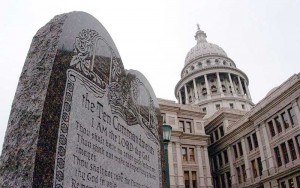 Ten-Commandments-Austin-State-Capitol-300x1881The Establishment Clause prohibits government sponsorship of religious messages. Therefore, it is inappropriate for government entities to erect or sponsor religious symbols or displays on government property.
Ten-Commandments-Austin-State-Capitol-300x1881The Establishment Clause prohibits government sponsorship of religious messages. Therefore, it is inappropriate for government entities to erect or sponsor religious symbols or displays on government property.
POLICY RECOMMENDATION: Restricting any religious symbols or displays on government property allows government entities to remain completely religiously neutral and conform to the courtÔÇÖs interpretation of the Establishment Clause.
GOVERNMENT FUNDING OF RELIGIOUS INSTITUTIONS
The Establishment Clause prohibits government funding of religious institutions. MadisonÔÇÖs Memorial opposed even a three pence tax that would support ÔÇ£teachers of the Christian religionÔÇØ as a ÔÇ£dangerous abuse of power.ÔÇØ Despite this principle, billions of taxpayer dollars have gone to religious groups to provide ÔÇ£secular services.ÔÇØ The law prohibits the use of the money for any ÔÇ£specifically religiousÔÇØ activities. For example, the government may not fund construction or repair of ÔÇ£buildings in which religious activities will take place.ÔÇØ
POLICY RECOMMENDATION: Taxpayer dollars should not fund religious activities or institutions, as proselytising and religiously motivated discrimination are inherent and oversight is functionally nonexistent.
LEGISLATIVE PRAYER
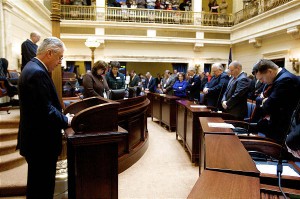 legislative-prayer-300x1991Prayer at government meetings is unnecessary. When government bodies lend their power and prestige to religion, it amounts to an endorsement that excludes the 22% of the population that is nonreligious. Including prayer at legislative meetings turns minorities, including atheists, Jews, Muslims, Hindus and Wiccans, into second-class citizens. Even when prayers are ÔÇ£nondenominational,ÔÇØ any form of prayer will inevitably exclude various taxpayers and constituents.
legislative-prayer-300x1991Prayer at government meetings is unnecessary. When government bodies lend their power and prestige to religion, it amounts to an endorsement that excludes the 22% of the population that is nonreligious. Including prayer at legislative meetings turns minorities, including atheists, Jews, Muslims, Hindus and Wiccans, into second-class citizens. Even when prayers are ÔÇ£nondenominational,ÔÇØ any form of prayer will inevitably exclude various taxpayers and constituents.
In Marsh v. Chambers, the U.S. Supreme Court carved out a narrow exception to the Establishment Clause for legislative prayer as a nod to history and custom. The Marsh exception was confined to a situation involving a non-sectarian, non-denominational prayer, led by an officiant who had not been selected based upon any impermissible religious motive, and which was addressed to the body of legislators present, and to no one else. Additionally, under this standard, legislators must have the option not to participate, and the prayer must not be ÔÇ£exploited to proselytise or advance any one, or to disparage any other, faith, or belief.ÔÇØ Some federal appellate courts have ruled that frequent sectarian prayers to ÔÇ£JesusÔÇØ affiliate the government with Christianity and are unconstitutional. The Supreme Court revisited its Marsh decision in the fall of 2013 (decision expected in 2014) when it took up Town of Greece v. Galloway.
POLICY RECOMMENDATION: Because of the legal uncertainty and the exclusionary effect such prayers have on non-theists and others who do not share the faith of the officiant, the best practice is to exclude prayer at legislative meetings.
TEN COMMANDMENTS
No Ten Commandments display in a public school has ever survived constitutional scrutiny by a court of last resort. Other displays of the Ten Commandments on public property have also been struck down as unconstitutional.
RELIGIOUS HOLIDAY DISPLAYS
It is impermissible for a government entity to place a nativity scene or menorah as the sole focus of a display on government property.
In contrast, temporary holiday displays which are secular in nature but include a religious element that is not the predominant element of the display have sometimes been permitted.
CROSS MEMORIALS
No use of Christian crosses as a form of war memorial has been upheld by a federal court as constitutional. These courts have found that the displays amount to a governmental promotion of, and affiliation with, Christianity and give the impression that only Christian soldiers are being honoured.

